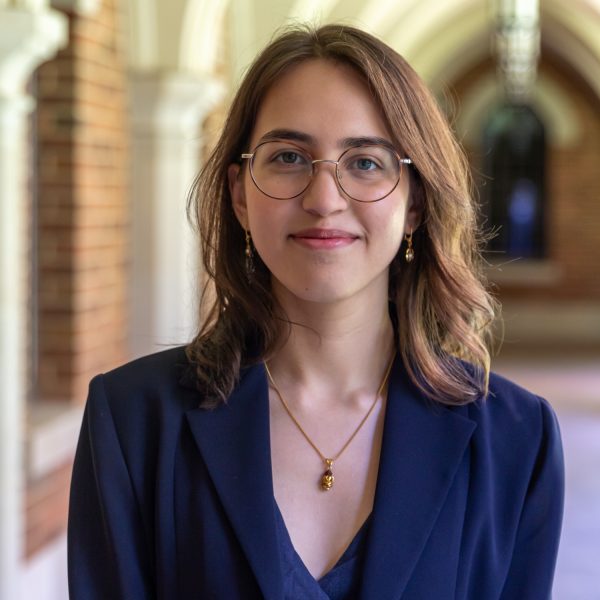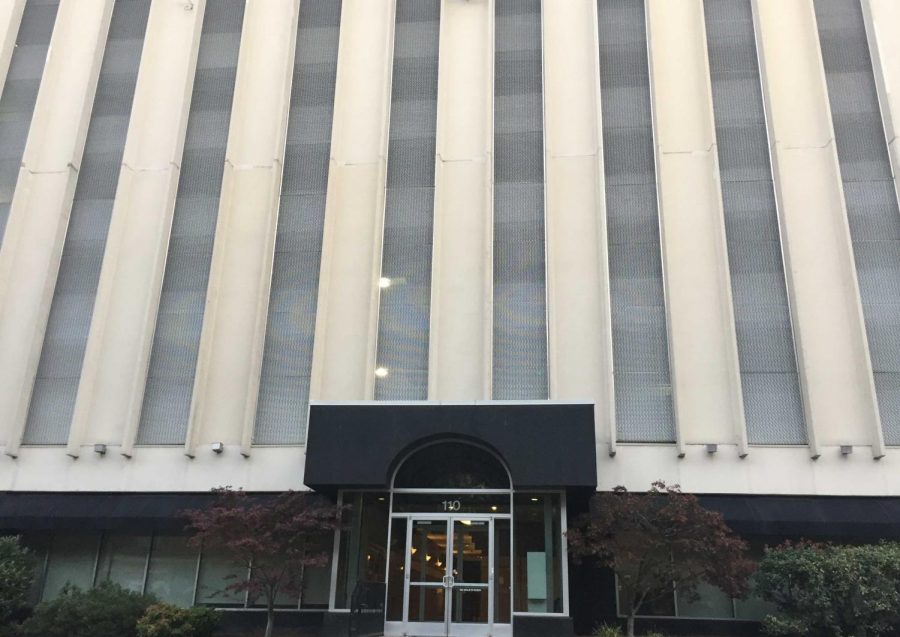Associate Professor of Philosophy Idit Dobbs-Weinstein filed a civil lawsuit against Vanderbilt on March 15, which claims that she suffered from “unlawful disability discrimination” due to the university’s mandated in-person teaching policies for faculty. She claims that she has a right to teach remotely as a disability accomodation under the Americans with Disabilities Act of 1990 (ADA), the Tennessee Human Rights Act (THRA) and the Tennessee Disability Act (TDA).
Dobbs-Weinstein filed the suit following Vanderbilt’s rejection of her request to teach remotely for the Fall 2021 and Spring 2022 semesters as a disability accommodation. On March 25, 2021, Vanderbilt announced that in-person classes would resume at the start of the Fall 2021 semester.
“The main thing to ask is the question ‘cui bono’ [who benefits]?…Why are they punishing me for being disabled?” Dobbs-Weinstein said. “For me, it [COVID-19] would be a death sentence.”
In the lawsuit, Dobbs-Weinstein requests compensation for lost income and employment benefits, as well as reputational damage, emotional distress and mental anguish.
“It has psychologically and physically affected me. It is really doing a lot of damage,” Dobbs-Weinstein said.
Per Dobbs-Weinstein, she began tutoring other students at the age of 10 and has taught her entire life.
“I’ve been a teacher for 62 years, so it’s such a repudiation of everything I care for and evidence of Vanderbilt’s arrogance.”
Accomodation request and university response
Dobbs-Weinstein is 72 years old and suffers from chronic obstructive pulmonary disease (COPD) and other pulmonary conditions, per the lawsuit. Hence, the suit claims that Dobbs-Weinstein qualifies under Section 101 of the ADA and faces heightened risks relating to COVID-19.
“I believe that I have been discriminated against based upon my medical disabilities and retaliated against for making requests for accommodation under the Americans with Disabilities Act,” the lawsuit reads.
Per documents in the lawsuit, Vanderbilt’s Reasonable Accommodation Manager Caitlin Bird asked Dr. Melissa Warren, assistant professor of allergy, pulmonary and critical care medicine at the Vanderbilt University School of Medicine (VUSM), to complete a Medical Information Request Form for Dobbs-Weinstein on Feb. 3, 2022, to verify Dobbs-Weinstein’s request for accommodation. The same day, Warren wrote to Vanderbilt administration to endorse Dobbs-Weinstein’s request for accommodation. Warren did not respond The Hustler’s request for comment.
“I am writing to advise that Ms. Dobbs-Weinstein should continue with remote teaching, or be given a further exemption from teaching in person past 2/4/2022,” Warren wrote in her statement included in the lawsuit. “She is seen in my office for chronic lung disease along with additional comorbidities that put her at increased risk of developing illness.”
Per an email obtained by the Hustler, Bird offered Dobbs-Weinstein temporary remote teaching through Feb. 11, 2022. On Feb. 19, 2022, Bird informed Dobbs-Weinstein in an email that her remote teaching extension had ended. The email asks Dobbs-Weinstein to resume in-person teaching by Feb. 21 or consider taking unpaid leave for the remainder of the semester.
“An additional accommodation option we could discuss is unpaid leave for the remainder of the Spring 2022 semester,” Bird said in the email.
The lawsuit reads that, on March 8, Bird offered Dobbs-Weinstein a paid leave of absence through August 15, 2022, as an accommodation. Bird acknowledged Warren’s medical opinion regarding Dobbs-Weinstein’s need for an accommodation but cited Vanderbilt’s in-person teaching policies as the basis for her decision. Bird did not respond to The Hustler’s request for comment.
“The university’s pedagogical model is based on in-person instruction, and remote teaching is not an option now that COVID-19 cases have decreased to the Medium level under the CDC guidelines, and vaccination is available,” Bird said in the email to Dobbs-Weinstein detailing the decision.
Concerns with university’s accomodation offer
Dobbs-Weinstein stated that a paid leave of absence was not a satisfactory accommodation to her medical needs and faculty obligations. She and Braun filed a motion for a temporary injunction on March 16 to allow Dobbs-Weinstein to teach remotely until her case was heard. However, the temporary injunction was not approved.
“They wanted to force me into a medical leave of absence, and initially, they offered me an unpaid leave of absence,” Dobbs-Weinstein said. “I’m not doing that to my students.”
The Hustler was unable to independently confirm that Dobbs-Weinstein was offered unpaid leave by the university.
Richard Braun, Dobbs-Weinstein’s attorney, emailed Vanderbilt’s Associate General Counsel Allison Cotton in response to Bird’s decision to deny Dobbs-Weinstein a remote teaching option on March 9. Warren also wrote to Cotton about the decision, emphasizing the previous letter of medical necessity she had written.
“It has come to my attention that her [Dobbs-Weinstein’s] request for remote teaching accommodations during the ongoing COVID pandemic surge is being denied,” Warren wrote. “This letter of medical necessity is in support of ongoing remote teaching for Professor Dobbs-Weinstein as her multiple underlying health conditions predispose her to significant risk in the event of COVID exposure.”
Similarly, in his response to the university, Braun addressed issues he claims are unresolved by the university’s accommodation, specifically in regards to how Dobbs-Weinstein supervises a Ph.D. candidate and an undergraduate student pursuing an honors thesis, as well as attends conferences. Dobbs-Weinstein also alleges that her salary increase for 2022-23 is based upon factors affected by a paid leave. The Hustler could not independently verify how the decision would impact Dobbs-Weinstein’s compensation.
Per Dobbs-Weinstein, career development opportunities like research funds and upcoming conferences are also contingent upon her continuing to teach and advise students.
“She has already approved research funds for conferences in Paris and Rome,” Braun said in the email to Cotton.
Dobbs-Weinstein also alleges that Vanderbilt already has infrastructure in place to Zoom people into their classes, as guest speakers have been Zoomed into her classes throughout the semester. In the Spring 2022 semester, she said guest speakers Martin Schuster, Jay Bernstein and Espen Hammer have spoken to her classes via Zoom.
“Why can other people Zoom in and I can’t?” Dobbs-Weinstein asked. “That’s the moment you see how punitive it is…It is pure arbitrariness, and that is what is most troubling.”
Dobbs-Weinstein also said she was frustrated by the university’s alleged lack of direct communication with her regarding her request and their alleged attempts to disconnect her from other faculty. The civil suit cites that Vanderbilt “failed or refused to engage in good faith in an interactive dialogue regarding” Dobbs-Weinstein’s request for accommodation.
“They even inhibited my [department] chair from talking to me, except through the lawyers,” Dobbs-Weinstein said.
However, the university disputed these claims in a statement emailed to The Hustler.
“While that legal claim is pending, the university and Professor Dobbs-Weinstein appropriately communicate about those issues through their legal counsel,” a Vanderbilt spokesperson said in an email to the Hustler. “Professor Dobbs-Weinstein and her department chair continue to communicate directly about other aspects of her research, teaching, and service.”
Alleged effects of the decision and virtual learning on students’ education
In a university statement emailed to The Hustler, Vanderbilt again stated that offering remote teaching and learning options is incongruent with the university’s mission and operations.
“Starting in Fall 2021, the university has communicated to members of the Vanderbilt community that offering synchronous, remote options via Zoom or other tools is inconsistent with the university’s decision to return to in-person instruction and could potentially cause issues of equity among students,” the statement reads. “We support faculty providing asynchronous options for students in quarantine and isolation.”
In a March 7 interview with The Hustler, Chancellor Daniel Diermeier stated that professors are permitted to host Zoom classes if they are quarantined due to having contracted COVID-19 or being identified as a close contact. Per Diermeier, exceptions would be made for professors “because they are the ones delivering the lectures.” “We wanted to be committed to a full return to in-person instruction”
Dobbs-Weinstein countered the university’s assertion about remote teaching, stating that it can be an important and effective option when necessary. In fact, she claims that the decision has had a negative effect on her students’ educational experience. Per Dobbs-Weinstein, the replacement instructors assigned to her Spring 2022 courses, while also being faculty members in the Department of Philosophy, do not have the same specialization as her. Dobbs-Weinstein further claims that teaching remotely cannot provide her students with the same “pedagogical experience” that she could have given her background and experience.
“It’s not just that they’re punishing me; they’re punishing my students,” Dobbs-Weinstein said.














Cali Blake • May 5, 2022 at 4:41 pm CDT
I’m 61 years old and female. I was diagnosed a couple of months ago with COPD and I was beyond scared! My lung function test indicated 49% capacity. After having had the flu a year ago, the shortness of breath, coughing, and chest pains continued even after being treated with antibiotics. I’ve been smoking two packs a day for 36 years. Being born without a sternum caused my ribs to be curled just one inch away from my spine, resulting in underdeveloped lungs. At age 34 I had surgery and it was fixed. Unfortunately, my smoking just caused more damage to my already underdeveloped lungs. The problem was having is that I enjoy smoking and don’t want to give up! Have tried twice before and nearly went crazy and don’t want to go through that again. I saw the fear in my family’s eyes when I told them about my COPD then they start to find solutions on their own to help my condition. It was not known then how dangerous cigarettes were for us, and it seemed everybody smoked but I was able to get rid of my COPD lung condition through the help of MULTIVITAMIN HERBAL CURE my husband bought, multivitamincare. org has the right herbal formula to help you get rid and repair any lung conditions and cure you totally with their natural organic herbs. I wish anybody who starts smoking at a young age would realize what will eventually happen to their bodies if they continue that vile habit throughout their life.
Chaz • May 4, 2022 at 6:19 pm CDT
62 years? Teaching since she was 10? Long past time to retire. And she’s probably spent far too much time radicalizing students to be scared of the Chicom cold, as well as other bogeyman, to be of any benefit to the actual success of students and alumni, let alone Vandy’s reputation.
Revoke this grifter’s tenure and send her shuffling.
Ruby • May 3, 2022 at 4:57 pm CDT
The article stated that she is 72 and SHE states she has been teaching for 62 years. So either she is actually 82 in which case its time to retire, or she was padding her experience and has multiple medical issues which is NORMAL for someone in their 80’s. Either way its time to retire. Aging is not a disability. It is an inevitability. By pushing this she sounds like a geriatric grifter. The students deserve better.
Mary D • May 4, 2022 at 6:26 pm CDT
“Per Dobbs-Weinstein, she began tutoring other students at the age of 10 and has taught her entire life.”
David • May 4, 2022 at 6:56 pm CDT
Per Dobbs-Weinstein, she began tutoring other students at the age of 10 and has taught her entire life.
“I’ve been a teacher for 62 years, so it’s such a repudiation of everything I care for and evidence of Vanderbilt’s arrogance.”
Indie • May 4, 2022 at 7:22 pm CDT
If you read you will see she started tutoring at age 10. That said, it may be reasonable at this point to take retirement.
Jacob • May 4, 2022 at 7:25 pm CDT
She started tutoring (a form of teaching) at age 10, now she’s 72. 72 – 10 = 62. I won’t call you disgusting names for your basic mental errors, like you’ve mistakenly done to Prof. Dobbs-Weinstein. But see the mistake, will you?
Apart from failures at basic arithmetic, your words betray a corrupt mind: It’s obscene to call one of Vanderbilt’s first openly LGBTQ+ faculty members a “geriatric grifter,” when all she wants is to do her job safely and receive standard compensation. Call your parents and touch grass, buddy.
Paul Sheldon • May 2, 2022 at 7:18 pm CDT
A paid leave of absence doesn’t seem like a bad deal. I can’t imagine any objections to her continuing to work with current student projects. I have seen significant health accomodations for younger faculty. Legally, unhealthy old faculty are protected, but I also see how it could become a huge drain on an institution if it is becoming more common.
Steve '21 • May 3, 2022 at 12:31 pm CDT
It literally says “unpaid” leave of absence in the article, definitely not a good deal ?
Chaz • May 4, 2022 at 6:20 pm CDT
“It’s not just that they’re punishing me; they’re punishing my students,” Dobbs-Weinstein said.
Something tells me that being her student is punishment enough.
A.L.B. • May 6, 2022 at 4:45 pm CDT
I’m a sophomore currently, and I know some students of hers that were really upset when she was forced to leave. They said she was a really special professor and her class was actually really cool.
David • May 4, 2022 at 6:58 pm CDT
The lawsuit reads that, on March 8, Bird offered Dobbs-Weinstein a paid leave of absence through August 15, 2022, as an accommodation.
Indie • May 4, 2022 at 7:23 pm CDT
She claims the initial offer was unpaid, but they are now offerong paid per the article.
Joel '04 • May 11, 2022 at 9:39 pm CDT
It literally says “paid” later on in the article.